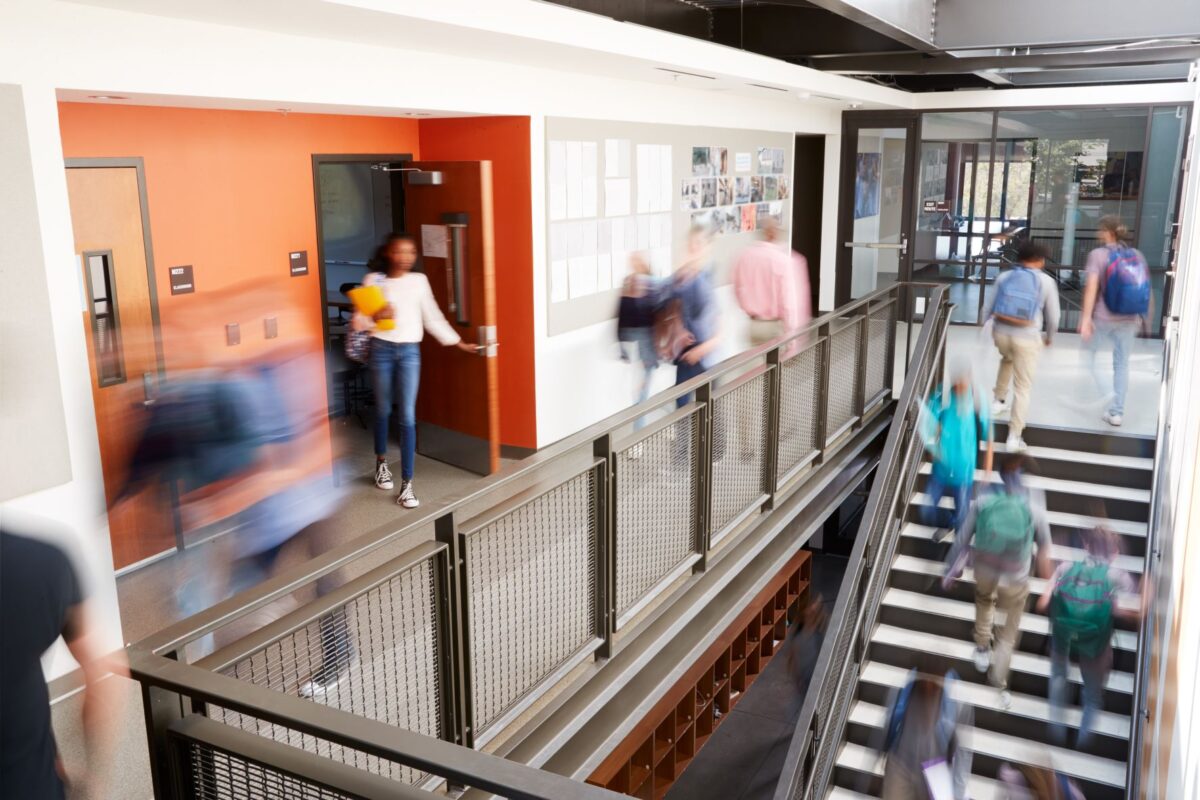Colleges show some improvement around accessibility and support for disabled students

One year on from the study that revealed FE colleges are failing blind and partially sighted students, ALL Able and Thomas Pocklington Trust (TPT) have repeated the research – and the findings show small improvements.
Last November, TPT revealed a lack of awareness, engagement and compliance across the FE sector in providing accessible learning, teaching and assessment materials. The research looked at blind and partially sighted students’ access to information and assistive technology (AT) in mainstream FE.
TPT has worked closely with the Association of Colleges (AOC) to raise awareness of the issues. They have encouraged college leadership teams to adopt the recommendations in TPT’s ‘Making College Accessible’ guide which shows how colleges can embed accessibility into everything they do.
Tara Chattaway, Head of Education at TPT, said: “We are incredibly grateful to the AOC for its support which has contributed to the growth in awareness and compliance across the sector. We know of several colleges who have now introduced measures as a result of this. But there is still much to do.”
Read the 2022 update: Accessibility in Further Education.
Headline results in the latest report show almost a quarter of colleges now have a Good or Compliant accessibility statements on their websites (up by 7.72%). And the number having Poor Quality or No Statements is down by 12%.
Tara said: “The reduction in poor quality statements is welcome but, at 63.18%, this is still too high. An accessibility statement is important because it shows a prospective student, before they embark on a course, that there has been an audit. It enables them to identify any potential accessibility issues.”
There has been an increase in knowledge around the regulations that govern accessibility, but many colleges are not using the regulations correctly. Not one college that claimed to be 100% compliant was found to actually be fully compliant.
There is a worrying increase in colleges installing ‘easy fix’ accessibility plugins. These claim to fix accessibility issues on websites by adding a small snippet of code or button.
George Rhodes, Director at All Able, said: “We advise colleges not to buy or use overlay products. They often do not fix accessibility issues, or provide the service advertised. There has been a concerted effort across the accessibility sector to call out the false advertising of these products. There is no alternative to an accessible-by-design website that you have developed in the correct way.”
David Holloway, Senior Policy Manager at the AOC, said: “The vital work Thomas Pocklington Trust does has been powerful in shining a spotlight on the issue of digital accessibility.
“As a result, colleges have undertaken lots of work to improve their accessibility, as is shown in this latest report. There is still a long way to go though and we will continue to work with colleges to remove barriers to entry and to help them to achieve their mission of providing high quality education and training for everybody.”
Clare Howard, CEO of Natspec, said: “We are grateful to Thomas Pocklington Trust for highlighting the issue of website accessibility and we are concerned by the results in the report.
“We briefed senior college leaders on the content of TPT’s 2021 report, reminding them of the importance of taking action. We also ran workshops to provide advice and guidance to publicity officers. TechAbility, Natspec’s Assistive Technology service, supports colleges with making resources accessible. We will be investing further in this service to help members ensure their websites are compliant with regulations.”
This research is part of TPT’s work in ensuring blind and partially sighted students have access to further and higher education. The remit of this research was to look specifically at technology and information in colleges. TPT has also conducted research into the lack of statutory support in its Give me Access to College study.
Tara added: “Every blind and partially sighted student should have access to a quality college education. Our research shows there is still a lack of inclusive practice creating a barrier to accessibility. This was seen in inaccessible software, systems, processes and culture.”
The report recommends urgent actions that Government, college leadership and college staff must take to improve support for blind and partially sighted students. These include:
1. Improve legal compliance with accessibility regulations across the FE sector for digital systems and learning resources.
2. College leadership should deliver an accessible-by-design approach in FE colleges.
3. FE colleges must support Special Education Needs and Disabilities (SEND)/Assisted Learning Support (ALS) teams to encourage organisational adoption of inclusive mainstream accessibility practices.
4. FE colleges must ensure access to accessible technology and effective training for partially sighted students in FE.
5. FE colleges should embed accessibility training for all students in FE colleges as a core employability skill.
TPT’s ‘Making College Accessible’ guide has practical recommendations for colleges to embed an accessible-by-design approach. It includes:
1. Implement a digital accessibility policy, making it clear that delivering an accessible-by-design approach is the responsibility of all staff, not just SEND/ALS teams.
2. Map the college digital estate, identify accessibility issues for each website / platform / learning resource system and prioritise remediation.
3. Ensure policy and processes are in place and followed by digital content teams. Creators of web pages and learning resources must deliver content which meets basic accessibility standards.
4. Invest in training to support staff in learning basic accessibility principles and adjustments to improve and create accessible content.
5. All colleges must not procure new digital systems that do not meet accessibility standards.
6. Engage with students to foster a more inclusive community.
Read the 2022 update and the full report.
About the research
The research investigated accessible information practices, compliance with accessibility regulations and how blind and partially sighted students access information and assistive technology (AT) in mainstream FE.
All Able’s research incorporates data from a documentary analysis of FE college websites, a survey of Special Education Needs and Disabilities (SEND)/Assisted Learning Support (ALS) teams across the sector, and interviews with students and staff in FE colleges across the UK.











Responses